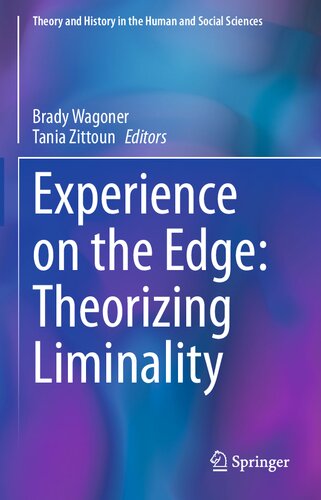

Most ebook files are in PDF format, so you can easily read them using various software such as Foxit Reader or directly on the Google Chrome browser.
Some ebook files are released by publishers in other formats such as .awz, .mobi, .epub, .fb2, etc. You may need to install specific software to read these formats on mobile/PC, such as Calibre.
Please read the tutorial at this link. https://ebooknice.com/page/post?id=faq
We offer FREE conversion to the popular formats you request; however, this may take some time. Therefore, right after payment, please email us, and we will try to provide the service as quickly as possible.
For some exceptional file formats or broken links (if any), please refrain from opening any disputes. Instead, email us first, and we will try to assist within a maximum of 6 hours.
EbookNice Team

Status:
Available4.6
39 reviewsLiminality has become a key concept within the social sciences, with a growing number of publications devoted to it in recent years. The concept is needed to address those aspects of human experience and social life that fall outside of ordered structures. In contrast to the clearly defined roles and routines that define so much of industrial work and economic life, it highlights spaces of transition, indefiniteness, ambiguity, play and creativity. Thus, it is an indispensable concept and a necessary counterweight to the overemphasis on structural influences on human behavior.
This book aims to use the concept of liminality to develop a culturally and experientially sensitive psychology. This is accomplished by first setting out an original theoretical framework focused on understanding the ‘liminal sources of cultural experience,’ and second an application of concept to a number of different domains, such as tourism, pilgrimage, aesthetics, children’s play, art therapy, and medical diagnosis. Finally, all these domains are then brought together in a concluding commentary chapter that puts them in relation to an overarching theoretical framework.
This book will be useful for graduate students and researchers in cultural psychology, critical psychology, psychosocial psychology, developmental psychology, health psychology, anthropology and the social sciences, cultural studies among others.